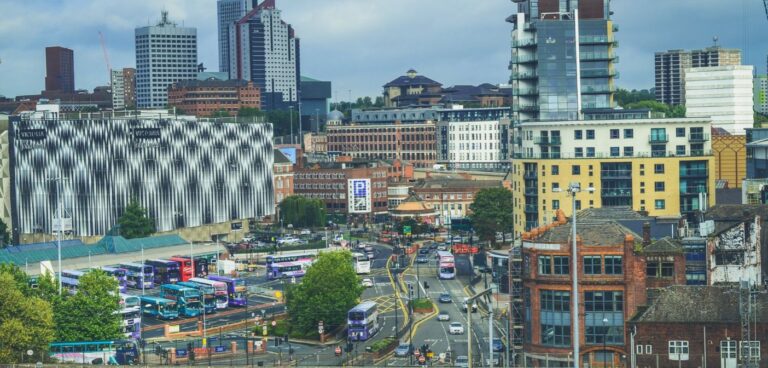Leeds City Council has confirmed that its proposed clean air zone (CAZ) is no longer required following businesses switching to cleaner vehicles faster than expected.
As previously reported by CiTTi, the council indefinitely suspended plans for a CAZ in August due to a significant reduction in air pollution levels during the coronavirus pandemic.
The council has now claimed that even if traffic returns to normal levels, the CAZ is not required due to a shift to cleaner vehicles reducing air pollution on key routes to below the legal limit.
Figures released by the council show more than 90% of buses and 80% of heavy goods vehicles driven in the city centre use cleaner Euro VI engines, with nearly half of the city’s licensed taxi and private hire cars either hybrid or electric.
Councillor James Lewis, deputy leader for Leeds City Council, said: “We have achieved the aims of the clean air zone without having to charge a single vehicle. If Leeds were to introduce a CAZ today, only a fraction of vehicles would be affected because the vast majority of businesses are now driving cleaner vehicles than they were just a few years ago.
“While we celebrate that our air is cleaner than ever, and cleaner than some other UK cities, this council also recognises that air pollution remains the biggest environmental threat to our health. That’s why we’re considering voluntarily introducing even stricter targets for Leeds, aligned with WHO guidelines. We will continue working hard to protect the health of everyone in Leeds from the effects of polluted air.”
The council said it had written to the UK government asking to use £6.9m in CAZ funding to continue offering grants for local businesses to switch to cleaner vehicles and provide free licensing costs to drivers of less polluting taxi and private hire cars.
Furthermore, Leeds City Council said it would look to repurpose the ANPR cameras previously installed to enforce the CAZ.





